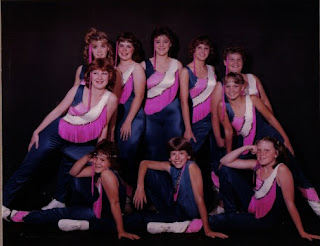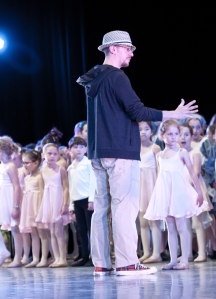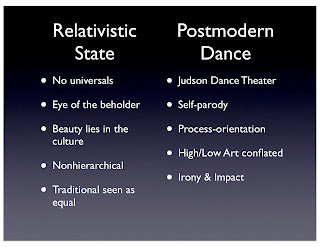Why I Don't Do Recitals
I am a diehard, lifelong Pittsburg Steelers fan--and a dancer. It goes without saying that I was doubly proud when Steeler’s wide-receiver Hines Ward won the recent season of Dancing With The Stars. But being both a football fan and a dancer has its pitfalls.
Imagine the ensuing embarrassment from mistakenly calling halftime an intermission. Or, imagine being in a group of friends (all non-dancers) at a sports bar and commenting on how you hate the team in the pinstripe "costumes...uh, I meant uniforms.”
I hate to admit it but I have made both of these slips. It provides a good laugh and I absorb a few jokes at my own expense (most commonly from my wife) but I get over it.
However, subtler mistakes in language can truly brand one as an outsider in these situations. Simple things--like referring to the ‘point after touchdown’ as a ‘field goal’--will get your Man Card taken away from you in most crowds. Knowing the correct lingo shows that you are part of the ‘tribe’--whether it be the tribe of diehard football fans or the tribe of dancers.
In dance there exists a specific set of words used in professional and college dance situations and a different set of words common to recreational dance studios. Personally, I cringe when I hear people refer to pointe shoes as toe shoes, call a dance a routine, or refer to their ensemble as a team (dance is an athletic art form but not a sport). The worst of all of these words, but the one so ingrained in the folksy lexicon of dance studios that few realize it is a complete misnomer, is recital.
In the professional, collegiate and educational dance worlds, performances are called concerts, showcases, or just performances--but never recitals. Why?
Throughout history, dance borrowed its terminology from the world of classical music. In this world, a recital is a performance by a single individual or a string of solo performances.
from http://dictionary.reference.com
re·cit·al
1. a musical entertainment given usually by a single performer or by a performer and one or more accompanists.
In music you can attend an individual's music or voice recital or you can attend a music recital where students get up one by one and share the piece(s) of music they have been working on. However, when a group of musicians or singers come together to perform (even when the group is small as a trio) the event is a concert. Literally, they are performing 'in concert' with each other.
con·cert
1. a public musical performance in which a number of singers or instrumentalists, or both, participate.2. a public performance, usually by an individual singer, instrumentalist, or the like; recital
Notice that concert definition number two points out that in the case when the concert is by an individual, it is referred to as a recital. Somewhere down the line dance studios appropriated the word recital and have misused it ever since. Why is this a big deal?
In the professional dance world, the word recital has a negative connotation: a kind of performance presented by small-town, recreational dance studios without educational value. There is a clear bias against the word and what it represents in dance education.
I have been an adjudicator at college dance department auditions and interviews. The differences between students are stark when they tell you they are about to perform “a toe-shoe routine that my dance team did at our recital” versus “an excerpt from a work that my ensemble presented in our concert.”
The former student will probably have difficulty transitioning into the educational and concert dance world of a college program and the latter will probably transition smoothly.
 |
| Exhibit A: Self-incriminating photo |
This experience instilled a deep desire in me to make sure I give the students I work with the correct information that will help them bridge from the dance studio to the world beyond. Whether they have aspirations or just dance for fun, they all deserve the correct information.
Personal motives aside, no one would accept an academic school teacher who encouraged students to use the word ain't even though it has become so common that it has a place in the dictionary. In math, 2 + 2 still equals 4 whether or not you are going on to higher education. So why should we accept lower standards in dance education?
I believe dance education is a noble and profound pursuit. Ultimately, knowing the language of professional dance is not simply a cosmetic device to let others know you are 'in the know'. Rather, it shows an embrace of dance as a respectable, noble, and profound art form.
So that is why I make every effort to call the break in football a halftime, the clothes those 'Damn Yankees' wear uniforms, and the annual dance performance a concert. That is why I don't do recitals.


Comments
Post a Comment